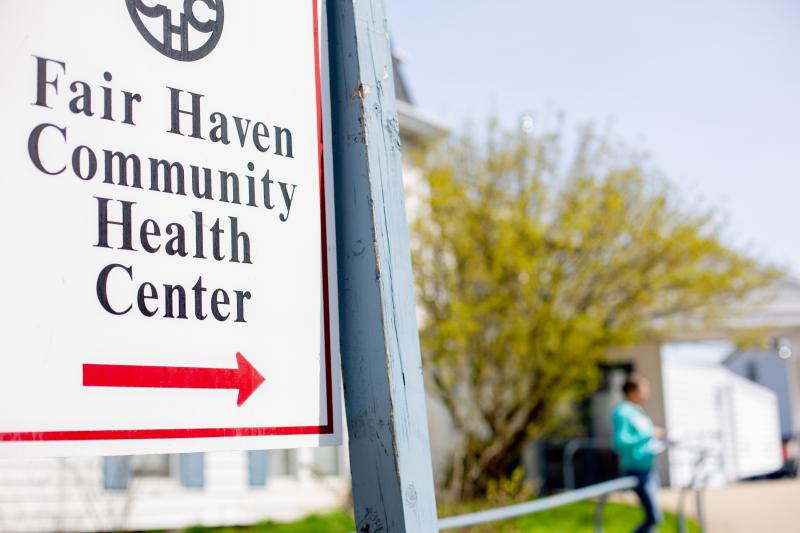NEW HAVEN, CT| by Nicole Leonard| May 1, 2019
Original article can be found at: https://www.wnpr.org

Dr. Suzanne Lagarde and her team at Fair Haven Community Health Care in New Haven see a steady stream of patients most days. People come in for routine wellness checks, or when they’re sick or injured.
And sometimes, a primary care physician could use the help of an e-consult.
“It’s like what we used to say in the old times, a curbside consult,” Lagarde said.
E-consult is a form of telemedicine—it involves a primary care physician using an electronic program to send patient files and pictures to a specialist, like a cardiologist or a dermatologist. That specialist can then make recommendations on treatment or care to the primary care doctor, who then uses that feedback to treat patients without ever having to send them elsewhere.
It’s what physicians are calling an innovative way to open up access to care, but it costs money to implement and maintain, which is holding back community health centers as they face funding challenges due to their status as federally qualified health centers.
“The biggest issue for them is they need a technology platform that allows them to communicate with a specialist in a confidential manner and to manage that communication process,” said Robert Rioux, CEO of Community Health Center Association of Connecticut. “So, there’s an investment required to bring that technology into play.
Lagarde has been championing the use of e-consults for several years now, citing how it can benefit the patients as well as the overall health care system.
“I mean, right now, we have huge waits. We serve a population that’s about 60 percent Medicaid, another 25 percent are uninsured—it can be extremely hard to get referrals for these patients,” she said. “A lot of these referrals can be solved with an e-consult and therefore unclog the bottleneck, right?”
But leaders at community health care centers said it’s been difficult getting they money they need to acquire the technology and pay specialists and doctors for their time.
That’s because the centers like the one in New Haven get reimbursed a set bundled payment for Medicaid patients—no matter what the visit is for or what care is provided during it. The federal government sets the rate and doesn’t pay extra for e-consults.
“We currently do e-consults on a very limited basis, because no one pays us to do it, so it has to come out of whatever discretionary funds we have, so we do it on a limited basis,” Lagarde said.
And because the state doesn’t provide the extra funding, Deb Polun says that unfairly leaves community health centers and their patients out of the equation.
“We’d love to be able to provide this service, but we can’t do it with the same rate that the health centers have now,” she said. “It’s just too much extra work, too much extra investment without getting some sort of support from the state.”
Polun is the senior director for policy and outreach at the Community Health Center Association of Connecticut, which has advocated for better support of e-consults within community health centers.
Meanwhile, primary doctors and specialists who use e-consults for Medicaid patients in the private sector can get reimbursed additionally for the telemedicine service.
Rioux said it’s unfair for community health centers to be excluded from that model, especially when expanding the service to more providers treating Medicaid patients could save the state money, he said.
“For every dollar, for example, that the state would invest in this type of program, they would see a benefit of $6 in return,” he said.
But officials at the state Department of Social Services say they are trying to find ways help centers provide e-consults.
A bill currently before the legislature would allow centers to request an increase to their reimbursement payment rate to help cover these additional costs. Advocates are skeptical that it will be enough to cover costs, but without any help, Polun says a significant portion of Connecticut residents who use Medicaid do not access to this model of care.
“So therefore, this 30 percent who tend to be the most vulnerable patients, who have the most barriers including language, literacy, transportation, child care and many, many other barriers to achieving optimal health, are the ones who are least able to access the type of specialist care that would help them get healthy and stay healthy,” she said.
But Lagarde says the state will only see significant health outcomes and savings if e-consults are applied on a broad scale, as it’s been done in other states like California. Otherwise, she said, Connecticut will remain behind the curve while patients miss out on improved care.
“There are lots of ways technology can help us be smarted and be netter and be better stewards of our patients care, and it’s just challenging,” she said. “Things move slowly.”
The bill currently in the legislature has already passed in the state senate—it will now be considered by legislators in the house.
Share this Post












